On Aug. 21, 1971, 20 anti-war protesters were arrested for breaking into selective service offices in Camden, New Jersey, and destroying draft records. Five days later, eight more people were indicted. The 28 people, called “the Camden 28,” referred to themselves as “America’s conscience.”
This group was comprised of four Catholic priests, a Lutheran priest, and 23 Catholic laypeople who claimed religious motives, believing that killing, even in war, was morally indefensible.
After a trial of three and a half months, in which the defendants spoke at length and included testimony by scholars (Howard Zinn testified as an expert on civil disobedience), the jury found the defendants not guilty, an astonishing judgement and was the first complete legal victory for the antiwar movement.
The Camden 28 Retrospective: Zinn Recounts His Testimony as an Expert on Civil Disobedience
In this clip, Zinn recounts his role as an expert on civil disobedience in the trial of the Camden 28, as well other Vietnam war protesters. Zinn explains that his job as an expert witness is to explain to the jury that “these people were doing something part of an honorable tradition in American history. That they weren’t simply criminals. That they were doing what the Boston Tea Party people had did in the American Revolution. They were doing what the people who defied the Fugitive Slave Law Acts and freed slaves before the Civil War did. They were doing what Americans had done all through American history in order to win justice for people…”
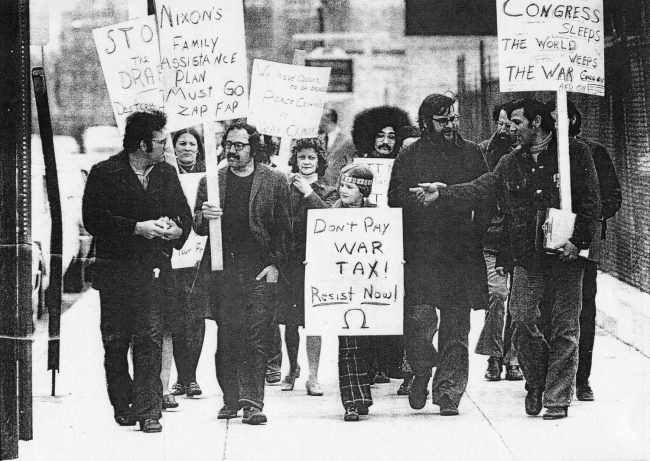
Camden 28 members Gene Dixon (far right), Milo Billman, and Mike Giocondo march at a local rally in Camden. Source: The Philadelphia Evening Bulletin and POV.
Learn more in the documentary The Camden 28 by Anthony Giacchino and at the Camden 28 website.

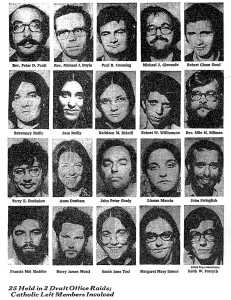
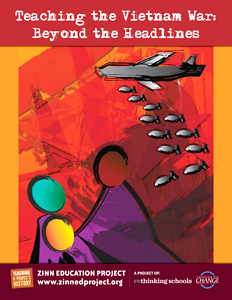
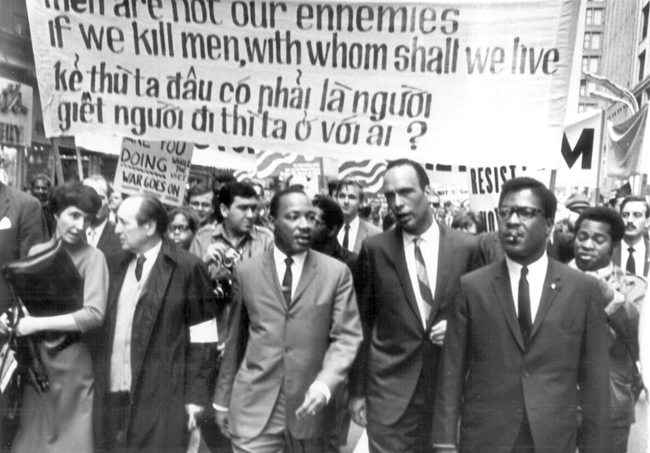
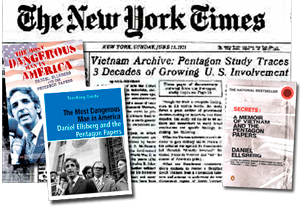
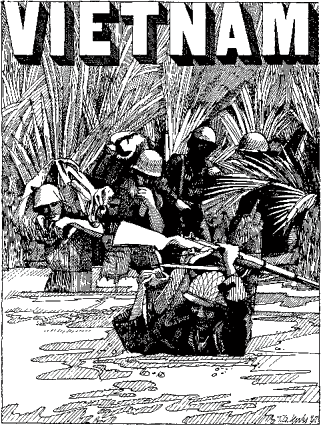
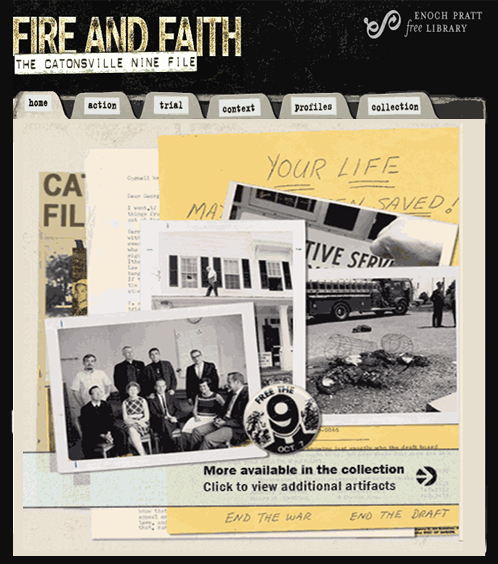
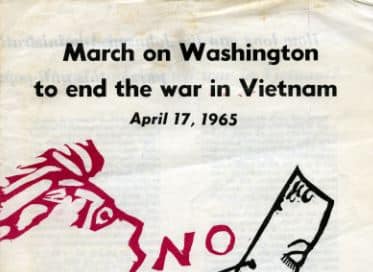
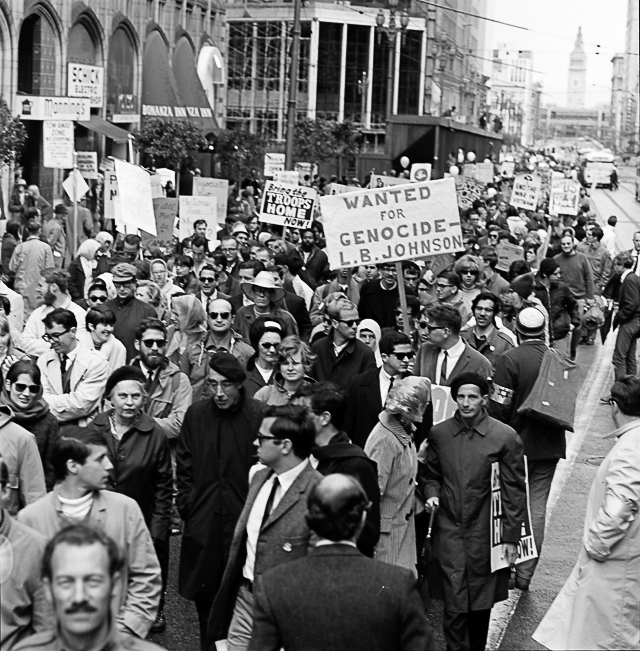
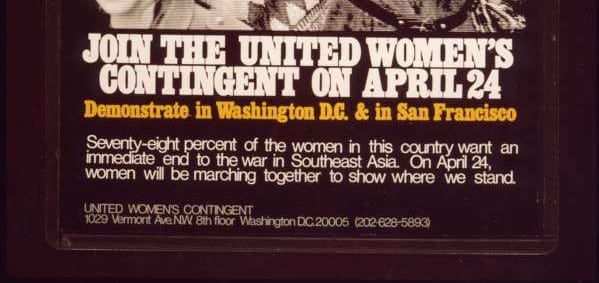





Twitter
Google plus
LinkedIn